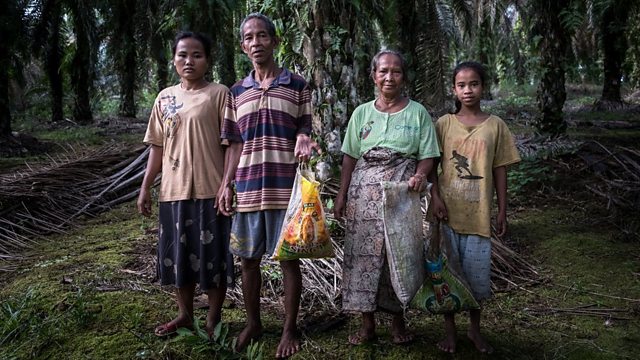The Indonesia tribes cut out of the palm oil boom
A joint ���˿��� investigation has found companies supplying major consumer goods firms are not meeting promises and legal regulations to share plantations with local villagers.
Vast tracts of the world's most biodiverse forests have been cleared for palm oil plantations. On the once jungle-covered Indonesian islands of Borneo and Sumatra, plantations now stretch for miles on end. The companies behind Indonesia’s palm oil boom have seen their profits soar as global prices have reached record high this year but a joint ���˿��� investigation has found companies supplying major consumer goods firms, including Kellogg’s and Johnson & Johnson, are failing to meet commitments and legal regulations that require them to share their plantations with local villagers. As a result, indigenous communities are losing out on potentially millions of dollars in income.
The investigation was done jointly with the investigative journalism organisation The Gecko Project and environmental news site Mongabay. ���˿���’s Asia editor Rebecca Henschke reports. According to the tribes living on the land, promises to share the land and wealth from palm oil plantations have not been honoured. Indonesia's biggest palm oil producer admits to not fully complying with the regulations and says it’s a ‘work in progress’.
Photo: Members of the Orang Rimba tribe lost their lands when palm oil companies took control of it Credit: Nopri Ismi
Duration:
This clip is from
More clips from Newshour
-
![]()
Damascus resident: 'Assad took everything from us'
Duration: 04:02






